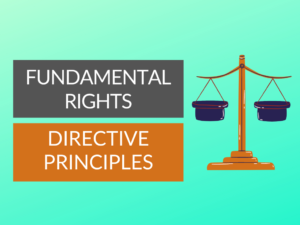Liberal vs Democracy: Understanding the Key Differences
Introduction: In the world of politics and governance, two terms that are often used interchangeably are liberal and democracy. While they share some similarities, they also have distinct differences that set them apart. In this article, we will delve into the meanings of liberal and democracy, explore their examples and uses, and finally highlight the key differences between the two.
What is Liberal?
Liberal, in its political context, is a belief system that emphasizes individual rights and freedoms. It advocates for limited government intervention in personal affairs and supports social, political, and economic freedom.
Examples of Liberal:
- John believes in liberal values such as freedom of speech and equality.
- Some liberal politicians believe in progressive taxation to support social welfare programs.
- Liberal democracies, such as Norway and Canada, prioritize individual rights and freedoms.
What is Democracy?
Democracy, on the other hand, is a system of government where power is vested in the people, either directly or through elected representatives. It allows citizens to participate in decision-making and ensures their voices are heard.
Examples of Democracy:
- The United States is a prime example of a democratic nation where citizens have the right to vote and participate in elections.
- India, the world’s largest democracy, holds regular elections and guarantees fundamental rights to its citizens.
- Ancient Athens, in Greece, is known for its direct democracy where citizens directly participated in decision-making.
Differences between Liberal and Democracy:
| Difference Area | Liberal | Democracy |
|---|---|---|
| Meaning | Emphasizes individual rights and freedoms. | System of government where power is vested in the people. |
| Governance | Does not exclusively refer to a governance system. | Refers to a specific governance system. |
| Scope | Can exist within democratic or non-democratic systems. | Represents a particular type of governance system. |
| Focus | Primarily concerned with individual rights and freedoms. | Primarily concerned with people’s participation and decision-making. |
| Application | Can be applied to various aspects, including economics and social issues. | Applied to the overall governance structure. |
| Level of Influence | Can influence democracy but not the other way around. | Can be influenced by liberal principles. |
| Flexibility | Allows for variations in interpretation and implementation. | Has a more defined and structured framework. |
| Primary Concern | Individual rights and freedoms. | Rule by the people. |
| Philosophical Basis | Rooted in political philosophy and theory. | Rooted in the idea of popular sovereignty. |
| Existence | Can exist without democracy (e.g., classical liberalism). | Cannot exist without liberal principles (e.g., liberal democracy). |
Conclusion:
In conclusion, while liberal and democracy are related concepts, they have distinct characteristics that differentiate them. Liberal focuses on individual rights and freedoms, whereas democracy emphasizes the rule by the people. Liberal can exist within democratic and non-democratic systems, while democracy represents a specific governance structure. Understanding the differences between these two terms is crucial to grasp the complexities of political ideologies and systems.
People Also Ask:
- What is the relationship between liberal and democracy?
Liberal and democracy are related but separate concepts. Liberal refers to a belief system emphasizing individual rights, while democracy is a system of government where power resides with the people. - Can a country be liberal without being a democracy?
Yes, a country can adopt liberal values and principles without being a democracy. Classical liberalism, for example, is a political philosophy focused on individual freedoms but not necessarily contingent on democratic governance. - Is democracy always liberal?
No, not all democratic systems are inherently liberal. Some democracies may prioritize collective decision-making over individual rights, depending on their cultural, historical, and political contexts. - Can liberal principles influence democracy?
Absolutely, liberal principles can influence the functioning of a democracy. The focus on individual rights and freedoms within a liberal framework can shape the policies and institutions of a democratic system. - Are liberal values universally accepted?
No, the acceptance of liberal values varies across different societies and cultures. Some may embrace liberal principles, while others may prioritize collective or traditional values over individual freedoms.


